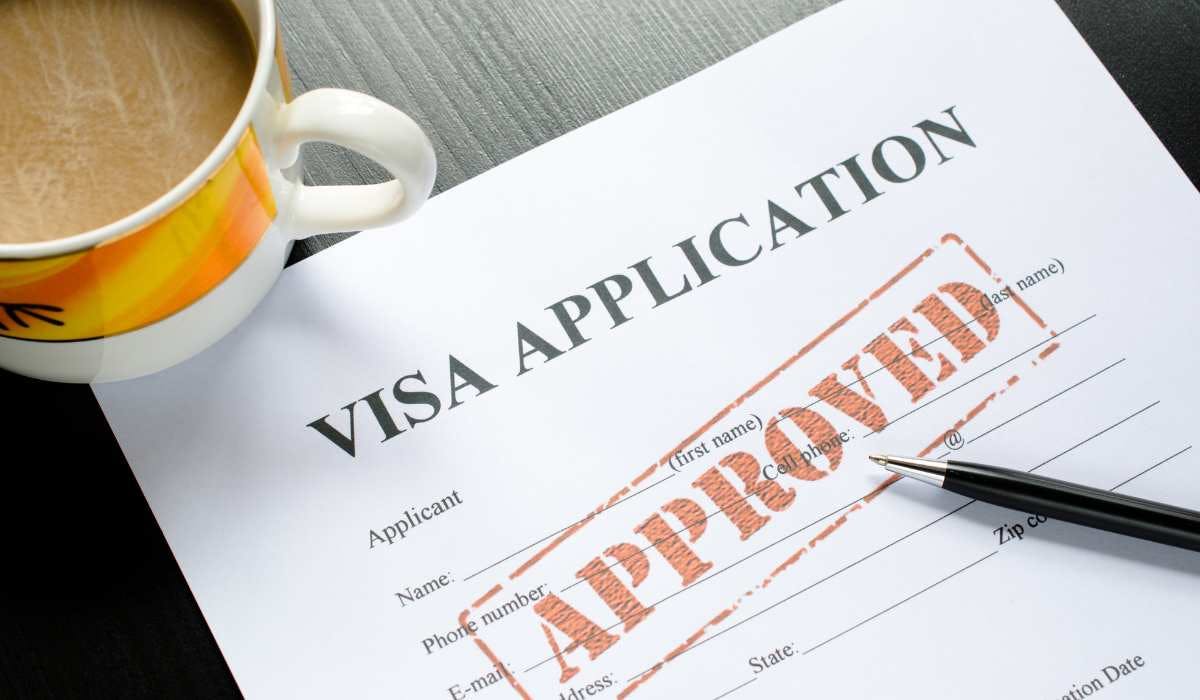Most foreign nationals need a work visa to be employed in Hong Kong, and a job offer from a registered company is essential.
Required documents include forms, contracts, and qualifications from both the employee and the employer.
Visa schemes like the General Employment Policy (GEP), Top Talent Pass Scheme (TTPS), and Immigration Arrangement for Non-local Graduates (IANG) are popular options depending on your background.
This ultimate guide will walk you through the process of getting a Hong Kong work visa, helping employees smoothly start a new job in this incredible city.
Do You Need a Hong Kong Work Visa?
Foreign nationals who wish to work in Hong Kong must obtain a work visa (also known as a Hong Kong work permit) issued by the Immigration Department. This requirement applies across most industries, from finance and engineering to hospitality and education.
Visa-free entries for tourism or short business visits do not permit employment.
Exceptions include:
- Working Holiday Scheme (short-term only, restricted to certain nationalities)
- Hong Kong residents or those with valid HKID-linked travel documents (e.g., BN(O), HKSAR Passport, Re-entry Permit, etc.)
Employers must demonstrate efforts to recruit locally before offering a role to a foreign national.
Overview of Hong Kong Work Visa Options
Employers must show efforts to hire locally before offering positions to foreigners.
| Visa Type | Target Applicants | Key Requirements | Duration & Renewal | Quota System |
|---|---|---|---|---|
| General Employment Policy (GEP) | Foreign professionals with specialized skills | Job offer from a Hong Kong employer, role requiring skills not available locally, relevant qualifications or experience | Initial stay of up to 24-36 months, renewable | No quota |
| Top Talent Pass Scheme (TTPS) | High-caliber professionals with outstanding qualifications | Graduates from top global universities, high-income earners, or notable achievements | Longer initial stay than GEP, faster processing | No quota |
| Quality Migrant Admission Scheme (QMAS) | Skilled individuals who can contribute to Hong Kong’s economy | Points-based system evaluating education, experience, language skills, and economic contribution | No job offer required, duration varies | Yes, limited spots annually |
| Admission Scheme for Mainland Talents and Professionals (ASMTP) | Skilled professionals from mainland China | Job offer in a role requiring specialized skills, additional requirements for mainland applicants | Similar duration and renewal as GEP | No quota |
| Immigration Arrangement for Non-local Graduates (IANG) | Non-local graduates from Hong Kong universities | Must have completed a full-time accredited program in Hong Kong | 12 months without a job offer (if applied within 6 months of graduation), renewable with a job offer | No quota |
| Working Holiday Scheme | Young adults (18-30) from eligible countries | Allows temporary work while traveling | Usually valid for 1 year, restrictions on job type | Yes, country-specific quotas |
| Foreign Domestic Helpers | Household workers | Employer must meet income requirements, live-in arrangement required | Employment contract-based | No quota |
| Second Generation of Chinese Hong Kong Permanent Residents | Individuals with Hong Kong PR parents but born overseas | Proof of parent’s permanent residency and meeting immigration rules | Residency and work rights granted | No quota |
| Training Visa | Individuals needing specific training unavailable in their home country | Sponsored by a Hong Kong company, training plan required | Up to 12 months | No quota |
| Capital Investment Entrant Scheme (CIES) | Entrepreneurs and investors | HKD 30M investment in eligible assets, business must benefit local economy | Residency with investment | No new applications accepted since 2015 |
| Technology Talent Admission Scheme (TechTAS) | Skilled professionals in tech fields (e.g., AI, data analysis) | Fast-track scheme for tech talent | Faster processing than standard work visas | Yes, employer quota applies |
Types of Work Visas in Hong Kong
Hong Kong provides several work visa schemes tailored to different types of professionals, each with its own eligibility criteria and application process. Here are the most common options:
1. General Employment Policy (GEP)
The GEP visa is the most widely used route for foreign professionals looking to work in Hong Kong. It is aimed at individuals with special skills, knowledge, or experience that are not readily available in the local workforce. To qualify:
- The applicant must have a job offer from a legitimate Hong Kong employer.
- The position must require skills or experience that cannot be found locally.
- The applicant should have relevant qualifications, such as a university degree or proven work experience.
The GEP visa typically allows for an initial stay of up to 24 or 36 months, with options for renewal. There is no annual quota for the number of GEP visas that can be issued.
2. Top Talent Pass Scheme (TTPS)
The TTPS is designed for exceptionally high-caliber professionals who can make significant contributions to Hong Kong's economy. The applicant must meet one of the following conditions:
- Category A: Earned at least HKD 2.5 million (about USD 319,535) in the past year.
- Category B: Graduated from one of the world’s top 100 universities and has worked for at least three of the past five years.
- Category C: Graduated from one of the world’s top 100 universities within the last five years and has less than three years of work experience. This option has a yearly limit and is given on a first-come, first-served basis. (This doesn’t apply to people who qualify for the Immigration Arrangements for Non-local Graduates program.)
The TTPS allows for a longer initial stay than the GEP and a faster application process, making it an attractive option for those with exceptional credentials.
Note: The applicant must not be a citizen of Afghanistan, Cuba, Laos, North Korea, Nepal, or Vietnam.
3. Quality Migrant Admission Scheme (QMAS)
The QMAS is a points-based system that evaluates applicants on factors such as education, professional experience, language skills, and their potential to contribute to Hong Kong’s economy. This scheme is unique in that it does not require a pre-existing job offer.
Applicants are selected based on their points score, and those with qualifications in high-demand sectors or strong connections to Hong Kong (such as having family members who are permanent residents) are given preference.
However, QMAS is highly competitive due to a quota system, and only a limited number of applicants are accepted each year.
4. Admission Scheme for Mainland Talents and Professionals (ASMTP)
The ASMTP targets skilled professionals from mainland China who have expertise that is in demand in Hong Kong.
The application process is similar to the GEP but with additional requirements specific to mainland Chinese applicants. It provides a pathway for mainland Chinese talent to live and work in Hong Kong.
5. Immigration Arrangement for Non-local Graduates (IANG) Visa for Non-local Graduates
The IANG visa is an employment permit for non-local graduates who have completed a full-time accredited program in Hong Kong. It lets you live and work in Hong Kong for up to 12 months without needing a job offer when you apply.
If you apply within six months after finishing school, you have extra time to find a job. Once that 12-month period is over, you'll need a job offer to extend your stay. This visa is part of Hong Kong’s strategy to keep international talent who studied locally.
6. Business and Entrepreneur Visas
Hong Kong offers several visa options for individuals who want to start or run a business without being employed by an existing company. One of the main options is the “Investment as Entrepreneurs” visa, which allows applicants to move to Hong Kong to manage and operate their own business.
To qualify, applicants must show that their business will bring real value to Hong Kong’s economy.
Immigration officials review factors like the business plan, expected revenue, available funds, investment amount, how many local jobs will be created, and whether the business introduces new technology or skills. Full criteria details are available online.
Other business-related visa options include:
- Training Visa – For individuals coming to Hong Kong for up to 12 months to receive specialized training that isn’t available in their home country.
- Working Holiday Visa – Available to citizens of certain countries aged 18 to 30. It lets travelers visit Hong Kong mainly for a holiday while taking part in short-term work, study, or training. Each country has a limited number of spots.
- APEC Business Travel Card (ABTC) – Citizens of the 21 APEC economies can apply for this card, which allows short business visits (2–3 months) to other APEC regions, including Hong Kong.
Frequent visitors can also apply for a Travel Pass, valid for three years and allowing multiple visits up to two months each.
To be eligible, you must have visited Hong Kong at least three times in the past year (not counting trips to or from mainland China) and prove a genuine need to travel often. This could include a letter from your employer or a key Hong Kong business contact.

Eligibility Criteria
The specific requirements vary depending on the visa scheme, but generally, applicants must meet the following conditions:
1. Job Offer and Employer Sponsorship
A confirmed offer from a legitimate Hong Kong employer for a role matching the applicant’s skills. Employers must prove they couldn’t fill the role locally.
2. Qualifications and Experience
A degree or equivalent experience is usually required. Some roles may need specific certifications.
3. Financial Resources
Applicants must prove they can support themselves (and any dependents). Employers must show they can pay the salary.
4. Clean Criminal Record
Applicants must provide a clean criminal record and pass a background check to ensure they do not pose a security risk to Hong Kong.
5. Language Proficiency
Although not mandatory, proficiency in English or Cantonese is highly advantageous, especially for certain professions. Fluency in these languages can strengthen the application.
Staying updated on immigration policies is crucial for successful visa applications. Refer directly to the Hong Kong Immigration Department website.
How to Apply for a Working Visa in Hong Kong
Obtaining a Hong Kong work visa involves a few key steps. By following these procedures carefully, you can ensure a smooth application journey:
- Gather Required Documents – Both employee and employer must gather required forms, contracts, proof of qualifications, and ID documents. The exact requirements will be outlined by the Hong Kong Immigration Department.
- Employer Involvement – The employer submits supporting documents to prove the job offer is legitimate and local recruitment was attempted.
- Submission and Processing – Once all documents are prepared, the employee (or the employer) can apply electronically or in person to the Hong Kong Immigration Department. Processing timelines can vary.
- Decision and Visa Collection – The Immigration Department will review the application. If approved, collect the visa and get ready to move to Hong Kong.

Documents Needed
Documents Required From the Work Permit Applicant
- Completed Employment Visa Application Form
- Copy of the personal particulars page of the employee's passport. If you are currently staying in Hong Kong, a copy of the passport page with the latest arrival stamp/extension of the stay label must be included.
- Copy of the employee's Hong Kong identity card (if applicable)
- Proof of overseas residence
- Proof of academic qualifications and relevant work experience
Documents Required From the Employing Company
- Application for Employing Professionals in Hong Kong
- Copy of the company’s employment contract or letter of appointment specifying post, salaries, fringe benefits, and employment periods
- Copy of the company’s Business Registration Certificate
- Proof of the company’s financial standing, such as the latest audited financial report, trading profit and loss account, or profit tax return
- Documentation detailing the company’s background, including business activities, mode of operation, company background/connection, product ranges, sources and markets, and Chamber of Commerce membership (if any), supported by catalogs, brochures, etc. (not required if sponsoring a non-local graduate)
- If the employing company was newly established within the last 12 months: Detailed business plan, including information on the source of funds, estimated capital injection, nature/mode of business activities, expected turnover, sales volume, gross and net profit projections, and proposed creation of local job posts
- Employing companies don't need to submit the mentioned documents (except the application form for employing professionals) if they obtained an employment or training visa/entry permit for a non-local staff in the past 18 months immediately before application submission.
- All documents must be in English or Chinese or translated into English or Chinese by a certified translation body.
- The Immigration authorities reserve the right to request additional documents from the applicant or employing company as needed.
Common Mistakes to Avoid in the Application
- Incomplete or Incorrect Documentation: Missing documents or errors in the application can cause significant delays or lead to rejection. Ensure all forms and supporting documents are complete, accurate, and up to date.
- Inadequate Proof of Qualifications: For employees, always provide certified copies of your academic qualifications, employment records, and professional licenses if required.
- Employer Sponsorship Issues: The employer must be aware of the responsibilities in the application process, such as demonstrating efforts to recruit locally and proving financial stability.
- Late Submissions: Do not wait until the last minute to apply. Submit the application well in advance, especially if the start date is approaching.
How to Renew Your Hong Kong Work Visa

If you have a work visa in Hong Kong but are not a permanent resident, you can renew it online.
Meanwhile, if you are part of special programs like GEP, Second Generation of Chinese HK Permanent Residents, Entrepreneurs, Non-Mainland Students and their dependents, or Descendants of HK Permanent Residents, you must apply to extend your visa at least four weeks before it expires.
To get started, you'll need to complete and sign Form ID 91. If you're renewing as a dependent, you'll also need Form ID 481A signed by your sponsor.
If you are a spouse or civil partner, you need to fill out one more form, Form ID 481B. These forms are free and available online or at any Immigration Department office.
For applicants under the Second Generation program, you can renew your visa completely online by uploading the needed forms. Depending on your individual case, you might also need to provide additional documents like a copy of your passport, your sponsor’s Hong Kong ID, or a letter from your employer confirming your position.
Tips for a Smooth Application Process
- Plan Ahead: Start preparing early to avoid delays. Gather the documents and research visa options.
- Organize the Documents: Keep a well-organized file of all required documents, including original copies and translations where necessary.
- Seek Professional Assistance: If you find the process complex, consider hiring an immigration consultant or lawyer to guide you.
- Communicate with the Employer/Employee: The employee and employer must both understand the visa requirements and provide the necessary support.
- Double-check the Application: Review everything thoroughly before submission to avoid delays caused by errors or missing information.
Why Following Immigration Rules in Hong Kong Matters
As more people travel or work remotely, Hong Kong is strict about ensuring that foreign nationals work legally. Working without the appropriate visa or on a tourist visa is illegal.
Violating immigration rules can result in serious legal and financial consequences for both employers and employees.
Employers who hire persons not lawfully employable (e.g., without a valid work visa) may face:
- A fine of up to HKD 350,000 (approx. USD 45,000), and
- Imprisonment for up to 3 years (not 10 years).
If an employer fails to take reasonable steps (such as checking valid Hong Kong ID or visa) to verify the employee’s legal status:
- They may be fined up to HKD 150,000 (approx. USD 19,000) and
- Face imprisonment of up to 1 year.
Employees working without a valid employment visa (e.g., working on a tourist visa or overstaying):
- May face a fine of up to HKD 50,000 (approx. USD 6,400),
- Imprisonment for up to 2 years, and
- Possible deportation after serving the sentence.
Conclusion
Getting a Hong Kong work visa involves more than just submitting forms—it requires planning, clear communication between employer and employee, and awareness of immigration rules. From GEP and TTPS to IANG and TechTAS, choosing the right scheme is key to a smooth relocation.
Need help navigating your Hong Kong work visa? Air Corporate can assist with expert guidance and end-to-end support.
FAQs
Any individual who wishes to work in Hong Kong and is not a permanent resident must obtain a work visa.
In most cases, work visas in Hong Kong are issued for full-time employment. Part-time work may be allowed under certain circumstances, but it's essential to check with the Immigration Department for specific regulations.
Work visa holders in Hong Kong may be eligible to sponsor their spouse and dependent children for dependent visas, allowing them to reside in Hong Kong.
If your employment ends while you're on a work visa, you're typically required to notify the Immigration Department and make arrangements to either leave Hong Kong or apply for a new visa status, such as a visitor visa.
Generally, work visa holders in Hong Kong need to apply for a new visa if they wish to change employers. However, there are some exceptions, such as if the new employment falls within the same job category.
If your work visa application is denied, you may appeal the decision or explore other visa options, depending on your circumstances. In such situations, it's advisable to seek guidance from immigration professionals or legal experts.
Creating a company for the sole purpose of sponsoring your work visa application may not work. Obtaining a work visa is subject to the employer demonstrating sufficient substance (financial statements, bank account balance, business plan). If you just created your company and try to use it to sponsor your work visa application, your visa is likely to be rejected. However, if your company was created for some time and has an actual business and revenue, it may be able to successfully support your visa application.
If you have a GEP work visa, your first visa is usually good for 24 months or as long as your job contract, whichever is shorter. You can apply for an extension starting four weeks before your visa expires, as long as you still meet the GEP requirements. If your extension is approved, you’ll usually get three more years or the length of your job contract, whichever is shorter.






